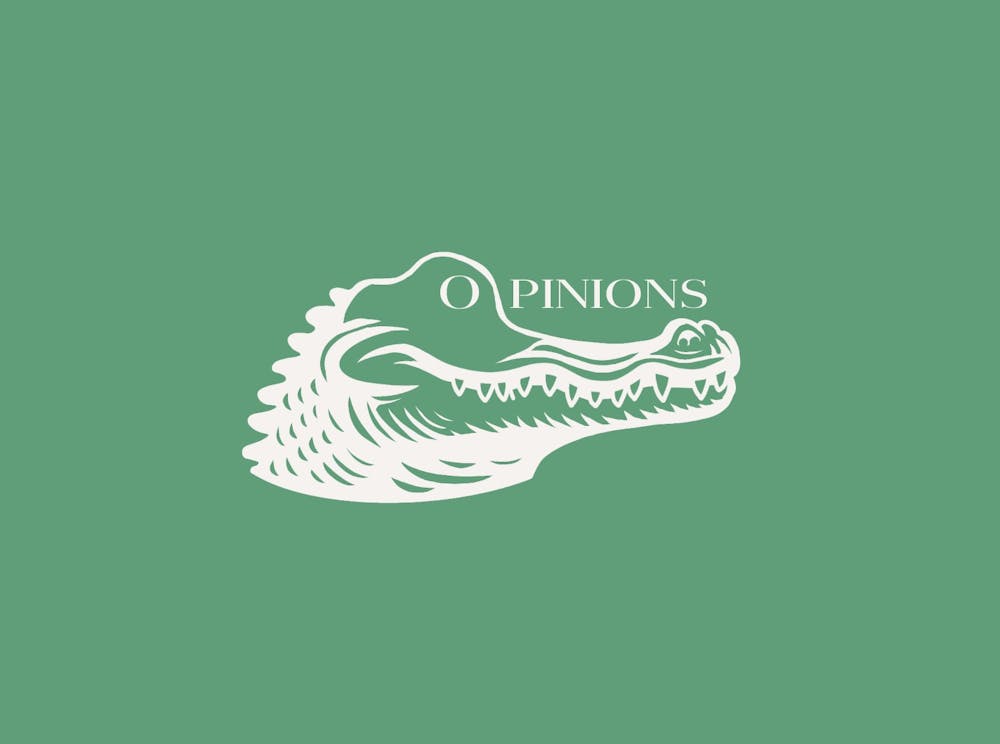I distinctly remember opening my acceptance letter from the University of Florida in February 2023 and feeling proud. I achieved my goal of getting into the most prestigious school in the state, and I planned on attending a university that prided itself on its academics and diversity.
Yet as the years progress, I feel increasingly disenchanted with what UF stands for. A look into its recent news stories may illustrate the cause of its slow, painful descent in rankings.
While the stark political divide within this country existed long before this year, I want to first draw attention to the Israel-Palestine protests affecting college campuses since 2024.
UF was no different.
I recall passing protesters advocating for Palestine as I walked into Library West. I soon heard of their arrest, and the protests dispersed. I wasn’t surprised, because UF released a statement prohibiting encampments, and one was still formed. I assumed that was the end — until I discovered former university president Ben Sasse’s response to the protests.
He said the protesters said “ridiculously…ignorant things” and that many of them were “stupid and reductionistic.” He eventually resigned from his position, albeit for different reasons. Shortly after, it came to light he unnecessarily spent hundreds of thousands of university dollars.
Months later, what truly struck me was when a UF law school student’s class paper argued the Constitution only applied to white people.
In his paper, titled “National Constitutionalism,” Preston Damsky wrote all nonwhite persons should have their voting rights protections revoked, among other civil liberties. He received a book award for the paper from his professor, an honor given to the best student in the class.
When the university came under fire for the decision, Merrit McAlister, the dean of the law school, defended the professor’s actions, stating professors “must not engage in viewpoint discrimination.”
Universities should practice “institutional neutrality,” he said, when administrators don’t take positions on political issues.
The university’s lack of consistency is what stands out in this situation.
Damsky was allowed to espouse his white supremacist views, which advocated for eugenics and strong anti-immigration policies. He was rewarded with the class’s best student designation despite his outrageous, constitutionally indefensible positions.
Meanwhile, pro-Palestine protesters — one of whom was charged with a felony for spitting on a police officer — were disbanded and called harsh names by UF’s former president.
Why does UF’s concept of “neutrality” only apply to certain viewpoints? Is the university practicing neutrality at all?
In addition to his paper, Damsky published several antisemitic posts on social media, resulting in the university banning him from campus.
He previously detailed several anti-immigrant and anti-Black ideals in his paper. UF officials only took action once it was put on social media and targeted toward a specific demographic.
UF’s inconsistent neutrality policy becomes clear: Discriminatory statements aren’t treated equally.
While the administration is inconsistent in the messages it’s willing to send, there comes a point in history when we must draw a line between what we deem politics and an indisputable violation of human rights.
The university encouraged a heinous call for the destruction of minorities’ human rights in an attempt to avoid taking a stand on controversial issues. It sent the message that racism and xenophobia will not only be allowed on campus but rewarded.
Despite claiming neutrality, the administration has taken a side that will foster fear and distrust on our campus.
As someone who used to be proud of attending UF, I hope we can move toward a brighter future that celebrates our differences instead of ignoring them under the guise of “neutrality.”
Maybe then it will be great to be a Florida Gator.
Grace Barrett is a UF zoology junior.






